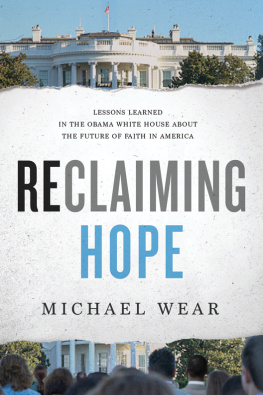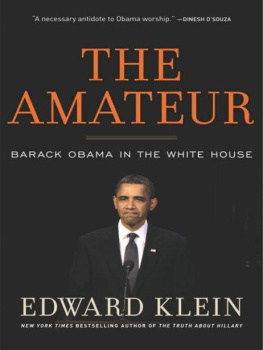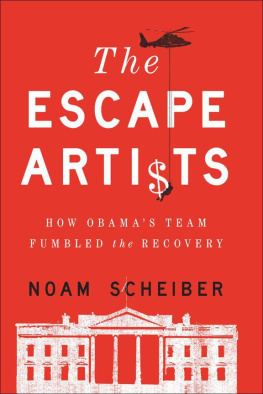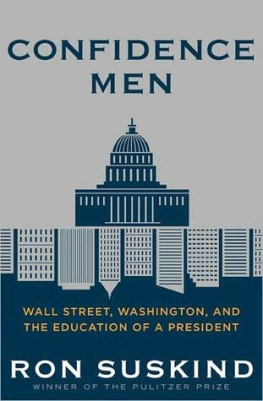We hope you enjoyed reading this Simon & Schuster eBook.
Sign up for our newsletter and receive special offers, access to bonus content, and info on the latest new releases and other great eBooks from Simon & Schuster.

or visit us online to sign up at
eBookNews.SimonandSchuster.com
Thank you for purchasing this Simon & Schuster eBook.
Sign up for our newsletter and receive special offers, access to bonus content, and info on the latest new releases and other great eBooks from Simon & Schuster.

or visit us online to sign up at
eBookNews.SimonandSchuster.com
FACING THE WORST ECONOMY SINCE THE 1930S, PRESIDENT BARACK OBAMA HIRED A CRACK TEAM OF ESCAPE ARTISTS: financial wizards who had pulled off numerous white-knuckle getaways during the Clinton era and who were ready to do it all over again. Three years later, with the economy still in a rut, its clear that they fell far short. This is the inside story of what went wrong.
The Escape Artists features previously undisclosed internal documents and extensive, original reporting from the highest levels of the administration. Star White House journalist Noam Scheiber reveals the mistakes and missed opportunities that kept the presidents pedigreed team from steering the economy in the right direction. He shows what responsibility the president bears for those missteps, what bold actions his brain trust refused to take despite its preternatural confidence, and how the White House was regularly outmaneuvered by Republicans in Congress.
Tracking the administrations efforts deep into the fall of 2011, The Escape Artists provides a gripping look inside the meeting rooms, in-boxes, and minds of the men who tried to manage the defining crisis of the Obama presidency: how the very qualities that made these men and women escape artists in the 1990s ultimately failed them.
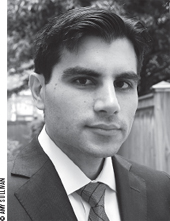
NOAM SCHEIBER is a senior editor at The New Republic magazine in Washington, D.C., and a Schwartz Fellow at the New America Foundation. He holds a masters degree in economics from Oxford University, where he studied on a Rhodes Scholarship. He covered the 2008 presidential campaign and the Obama White House.
Visit him at www.noamscheiber.com.
MEET THE AUTHORS, WATCH VIDEOS AND MORE AT
SimonandSchuster.com
THE SOURCE FOR READING GROUPS
JACKET DESIGN AND ILLUSTRATION BY OLIVER MUNDAY
COPYRIGHT 2012 SIMON & SCHUSTER



Simon & Schuster
1230 Avenue of the Americas
New York, NY 10020
www.SimonandSchuter.com
Copyright 2011 by Noam Scheiber
All rights reserved, including the right to reproduce this book or portions thereof in any form whatsoever. For information address Simon & Schuster Subsidiary Rights Department, 1230 Avenue of the Americas, New York, NY 10020.
First Simon & Schuster hardcover edition February 2012
SIMON & SCHUSTER and colophon are registered trademarks of Simon & Schuster, Inc.
The Simon & Schuster Speakers Bureau can bring authors to your live event. For more information or to book an event contact the Simon & Schuster Speakers Bureau at 1-866-248-3049 or visit our website at www.simonspeakers.com.
Designed by Ruth Lee-Mui
Library of Congress Cataloging-in-Publication Data
Scheiber, Noam.
The Escape Artists / Noam Scheiber.
p. cm.
Includes bibliographical references and index.
1. United StatesEconomic policy2009 2. United StatesPolitics and government2009 I. Title.
HC106.84.S34 2012
330.973dc23 2011045693
ISBN 978-1-4391-7240-7 (print)
ISBN 978-1-4391-7242-1 (eBook)
To Amy, Finoula, and my parents
CONTENTS
PROLOGUE
S hortly after four oclock on the afternoon of Wednesday, April 13, 2011, U.S. Treasury Secretary Tim Geithner walked down the hall from his office toward a large conference room facing the buildings interior. He was surrounded by a retinue of counselors and aides. When they arrived in the roomknown around Treasury simply as the largefour people were seated at a long walnut table on the side near the door. Geithner and his entourage greeted them, then walked around to the far side and took their seats.
At first glance, Geithner gave the impression of the former Wall Street banker many Americans assumed him to be. He wore elegant suits and alpha-male ties. His spread collars suggested a Savile Row provenance. But, given a moment to focus, the eye noticed hints of something else. His shoes were a bit shabby. On his wrist he wore an old digital watch. The suit, upon closer inspection, was Brooks Brothersoff the rack. It had only seemed nattier because he was well-proportioned and boyishly trim. Geithner wasnt an ex-banker after all. He was a lifelong bureaucrat.
This status gave him a measure of independence of which he was rightly proud. While friends and former co-workers moved seamlessly from government to business and back, Geithner had resisted the easy payday time and time again. I never worked on Wall Street, he told a group of congressional Democrats in early 2009. Ive worked in public service my whole life. Where others might be cowed in the presence of bankers, knowing they might soon petition the lords of finance for a sinecure, Geithner could have fun at their expense. As an assistant secretary in the late 1990s, he had once met a delegation from Goldman Sachs to discuss an obscure business matter. Well, this is a fucking ugly issue, isnt it? he said, before anyone else had uttered a word. The Goldman men laughed nervously.
But if Geithners actions were independent, his mind was perhaps less so. As a government official, Geithner cared deeply about the constituents he consulted with, be they Wall Street big shots, financial technocrats, or market pundits. They were the people with whom a successful bureaucrat must have credibility, and there were few thoughts more mortifying to Geithner than looking unsophisticated in their eyes. He labored over draft after draft of his speeches and parsed every word of his op-eds. Back in December 2008, while Geithner was preparing for his Senate confirmation hearing, an aide asked if his family would attend. Money will not be daunted by that, he said, waving off the suggestion. Money was an allusion to Wall Street and the people whose judgments Wall Street respected. He was keen to make a good impression.
By contrast, Geithner was decidedly less taken with those whose views he considered naive. And this explained his impatience with the group he was meeting today. The four visitors hailed from Standard & Poors, the credit rating agency. They had come to voice their concern about the U.S. budget deficit, which was darkening their mood about the creditworthiness of the United States.
It turned out that S&P and its ilk were a species that money held in exceedingly low regard. Long before the financial crisis of 2008, Wall Street had derided the rating agencies as hubs for intellectual mediocritiesthe clock punchers that banks and hedge funds had passed over. Then, in the bubble years, the big banks financial engineers became expert at duping the agencies into blessing their dodgy mortgage securities, mostly by burying the agencies leaden-eyed analysts in self-justifying math. After the securities turned toxic and the agencies were justly vilified, their pleas of ignorance sounded all too plausible. Many of the S&P analysts werent even based in New York. One of the men tasked with rating the trillions of dollars in U.S. government debt worked from an office in... Toronto .
Next page


